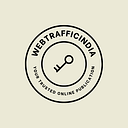
A Beginner’s Guide to Programming Concepts
Programming is the art of instructing computers to perform tasks, solve problems, and create innovative solutions. For beginners, delving into the world of programming may seem daunting, but this guide aims to simplify the journey by breaking down essential programming concepts. Whether you’re aspiring to be a web developer, software engineer, or data scientist, understanding these fundamentals is key.
What is Programming?
Programming is the process of designing and building executable computer programs to accomplish a specific task. It involves writing code using a programming language, a set of instructions understood by computers.
Importance of Learning Programming Concepts
Understanding programming enhances problem-solving skills, logical thinking, and creativity. It empowers individuals to automate tasks, analyze data, and create applications, making it an invaluable skill in today’s tech-driven world.
Overview of Programming Languages
- Popular Programming Languages: Explore widely-used programming languages such as Python, JavaScript, Java, and more. Each language has its strengths and use cases, catering to different aspects of programming.
- Choosing the Right Language for Your Goals: Consider your objectives when selecting a programming language. For web development, languages like HTML, CSS, and JavaScript are essential, while Python is favored for data science.
Basic Programming Terminology
- Variables and Data Types: Learn how to store and manipulate data using variables and understand different data types like integers, strings, and booleans.
- Operators and Expressions: Explore operators for mathematical and logical operations, and discover how expressions combine variables and operators.
- Control Flow (Conditional Statements and Loops): Understand how conditional statements (if, else) and loops (for, while) control the flow of program execution.
Functions and Methods
- Understanding Functions: Grasp the concept of functions as reusable blocks of code that perform specific tasks.
- Creating and Using Functions: Learn to define, call, and pass parameters to functions, enhancing code modularity.
- Methods in Object-Oriented Programming: Get introduced to methods, functions associated with objects in object-oriented programming (OOP).
Data Structures
- Arrays and Lists: Explore structures for storing multiple elements, such as arrays and lists.
- Dictionaries and Hash Tables: Understand key-value pairs in dictionaries and hash tables for efficient data retrieval.
- Introduction to Linked Lists: Delve into the basics of linked lists, a linear data structure.
Introduction to Object-Oriented Programming (OOP)
- Principles of OOP: Grasp OOP principles like encapsulation, inheritance, and polymorphism.
- Classes and Objects: Learn about classes and objects as the building blocks of OOP.
- Inheritance and Polymorphism: Explore inheritance for code reusability and polymorphism for flexible code.
Error Handling and Debugging
- Common Programming Errors: Identify and address common errors encountered during programming.
- Debugging Techniques: Learn techniques to troubleshoot and debug code effectively.
Version Control and Collaboration
- Importance of Version Control: Understand the significance of version control systems like Git.
- Introduction to Git and GitHub: Explore Git for version control and GitHub for collaboration.
Basic Algorithms
- Sorting Algorithms: Learn fundamental sorting algorithms like bubble sort and quicksort.
- Searching Algorithms: Explore searching algorithms such as linear search and binary search.
Introduction to Web Development
- Frontend vs. Backend Development: Distinguish between frontend and backend development responsibilities.
- Basics of HTML, CSS, and JavaScript: Get an overview of essential web development languages.
Future Trends in Programming
- Emerging Technologies: Explore emerging technologies shaping the future of programming.
- Continuous Learning and Professional Growth: Embrace a mindset of continuous learning for sustained professional growth.
Keep following Web Traffic — A Leading Content Writing Agency in Delhi
